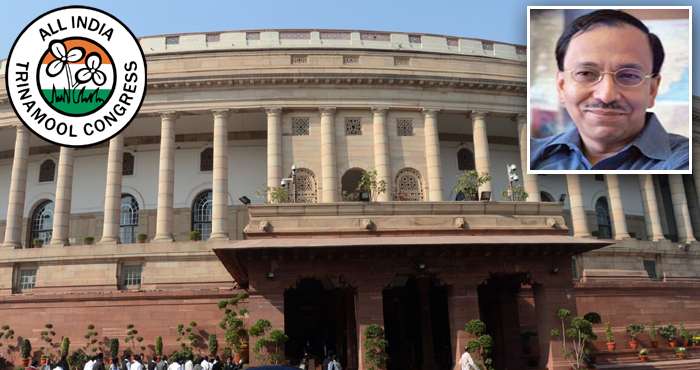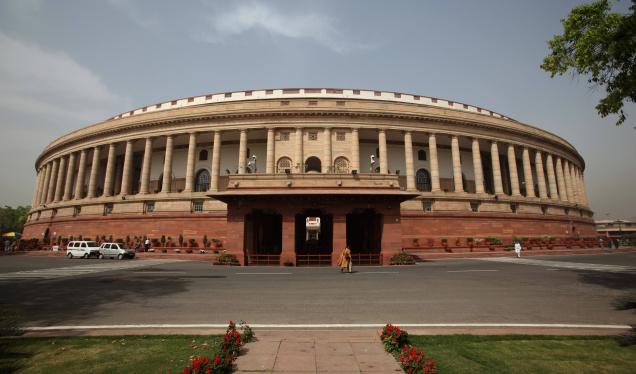Six new IITs will be set up at Tirupati, Palakkad, Dharwar, Bhilai, Goa and Jammu and the Indian School of Mines in Dhanbad which is just across the border of West Bengal in Jharkhand is going to be upgraded to an IIT. Just reciting the name of these places is a wonderful reminder of the diversity of our country. Whenever I rise to speak in this august House on the subject of education there is a general expectation that I will speak about quality, excellence and merit.
Today I would want this House to think carefully over the question, what is merit? I posed this question because I feel that in our country there is a great danger of passing of accumulated caste privilege as merit. If there are huge sections of our people who have suffered historic injustice then we should be very careful not to label them as people who lack merit. It is our fault that they have not got adequate opportunities to excel in our schools of higher education.
Now it is often forgotten that the IIT Act was of course passed in 1961. But reservations for scheduled castes and scheduled tribes, 22.5 per cent, were not extended to the IITs until 1973. That was done under the Prime Ministership of Smt Indira Gandhi. And the OBC reservations were not extended until as late as 2006. I was reading an article by an anthropologist at Harvard University, named Ajanta Subramaniam, titled ‘Making Merit’, published in the Comparative Studies of Society and History, and I was startled to read some of the statistics that were given in that article about IIT, Madras.
Mr Deputy Speaker you know better than anyone else that our state of Tamil Nadu led ever since the great figure Annadurai showed us the way. The state of Tamil Nadu has empowered the backward class, schedule caste and scheduled tribes for decades.
But IIT Chennai is a Central institute, and as of 2015 (the numbers may have changed slightly since then), if we look at the figures for faculty members, there were 464 faculty members in the general category, 59 in the OBC category, only 11 in the scheduled castes category and a mere two in the scheduled tribes category.
These numbers cannot be explained by merit alone. These numbers can only be explained by conscious and subconscious bias against the disadvantaged sections of the people in our country. And that is why I said, please do not confuse accumulated past privilege as merit. Let us not have traditional cultural capital be transformed into modern capital in our institutes of technology, which are institutes of national importance.
Whenever the question of IIM comes up, we talk of autonomy. Now, of course, it is important to give autonomy to IIT directors, to chairpersons of governing boards of the IITs, and this Parliament must always preserve its prerogative which was under challenge by the HRD Ministry to declare institutes of national importance.
Now, the Hon’ble Human Resources Development Minister talks about accessibility as being one of his four mantras, and we have actually now given some accessibility in our IITs and our Central universities to scheduled castes and scheduled tribes. But the question is that have we given the feeling of equal citizenship inside the portals of our great institutions of higher learning? That is why, when students at IIT Chennai want to set up an Ambedkar and Periyar Study Circle, why should the Dean of Students, at the direction of the Central Government, derecognise such a study circle? Everyone should be reading the works of Dr Ambedkar and of Periyar. So that is why it is very important to go beyond the accessibility and give a sense of inclusiveness to Dalit students or Adivasi students or OBC students who are beginning to enter in large numbers into institutes such as the IITs.
In conclusion, let me elaborate a little bit on a point that I raised during Questions Hour this morning. For some time now, in this Parliament, in response to the Budget presented by this Government, I have been saying that we should not make a ritual of setting up five new IITs, five new IIMs every year; and I think the Finance Minister listened to that point when he announced that he was going to have 10 public and 10 private institutions that would be selected to become globally competitive.
I say this because we have to think very carefully about when we should set up new institutes and when we should strengthen our existing institutes. And I say this not because I feel that the brand name of the IITs will be diluted by setting up new IITs. I’m actually in favour of having at least one IIT in every State, and I hate importing the terminology of the world of commerce into the world of learning. I don’t like the word ‘brand’ which was even used by my friend Shashi Tharoor in which he wrote on the brand IIT, but I am more concerned that we should make sure that we have the human resources to staff the new institutes that we are setting up and that is why when we select those 20 institutions that will have a special enabling regulatory framework, I think, we should choose the most promising existing institutions, a few IITs or Indian Institutes of Science, a few central universities and a few state universities.
Finally, we have paid tribute to our tribute to our Prime Minister Jawaharlal Nehru under whose leadership the IITs were set up in the early 1960’s but I would like to mention today, one great scientist from Bengal whose vision lost out in the post-independence period. His name was Meghnad Saha; he was the scientist who was appointed to the National Planning Committee by none other than Netaji Subhas Chandra Bose in 1938 and of this National Planning Committee he also made Jawaharlal Nehru, the Chairperson. But there was a debate between Dr Homi Bhabha on one hand and Meghnad Saha on the other in the immediate post-independence decade. Meghnad Saha was a member of this august House but Jawaharlal Nehru listened to Homi Bhabha so that scientific research especially the atomic energy research became secretive state-controlled enterprise. Meghnad Saha had suggested that even nuclear physics research should take place in our finest universities. These were the days before the IITs.
So, I would like to also suggest to the government that while building on the achievements of the past, they should also show a new direction of policy for the future so that the IITs which are a good teaching institutions also become the venues of cutting-edge research. Let us support the best central and state universities as also incubators of innovative research, if we do that we will be paying a genuine tribute to a figure like Meghnad Saha whose grand farsighted vision was not accepted the way it should have been in the early 1950s.
With these words I would like to thank you once again, Mr. Deputy Speaker, Sir, for giving me the opportunity to speak on the IIT (Amendment) Bill. These are occasions on which we can actually deliberate more broadly on education policy as a whole. Thank you very much.


